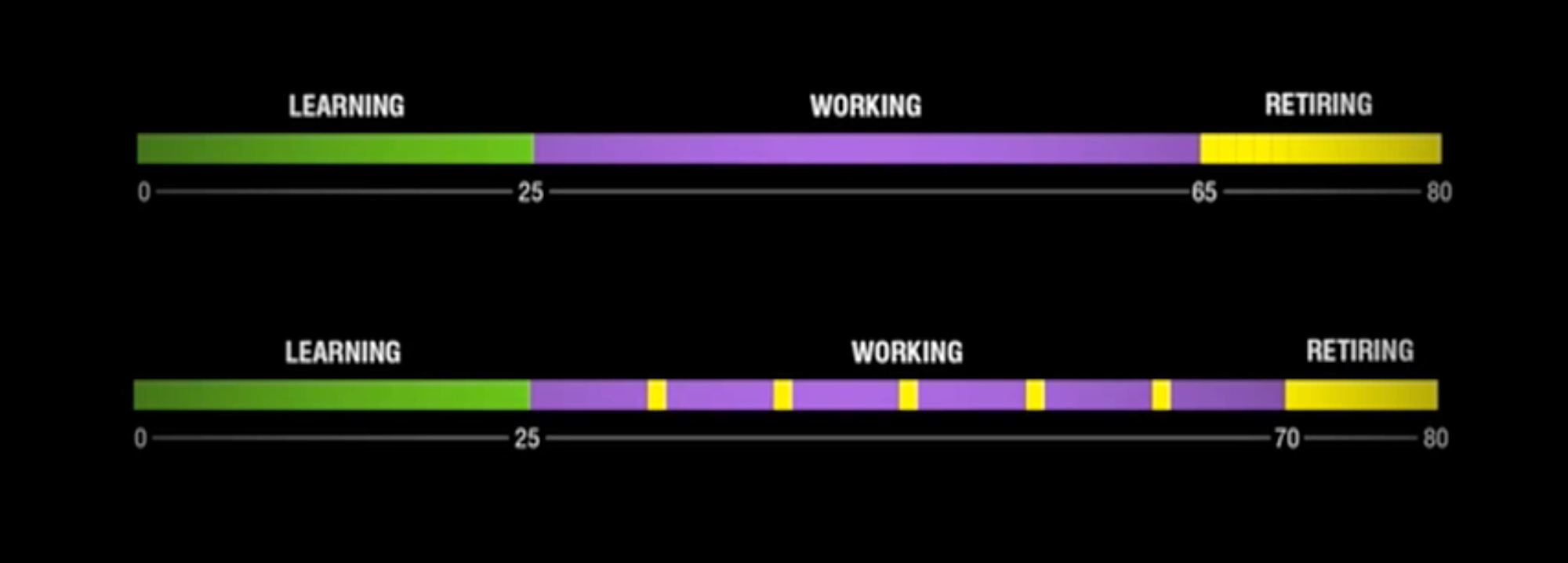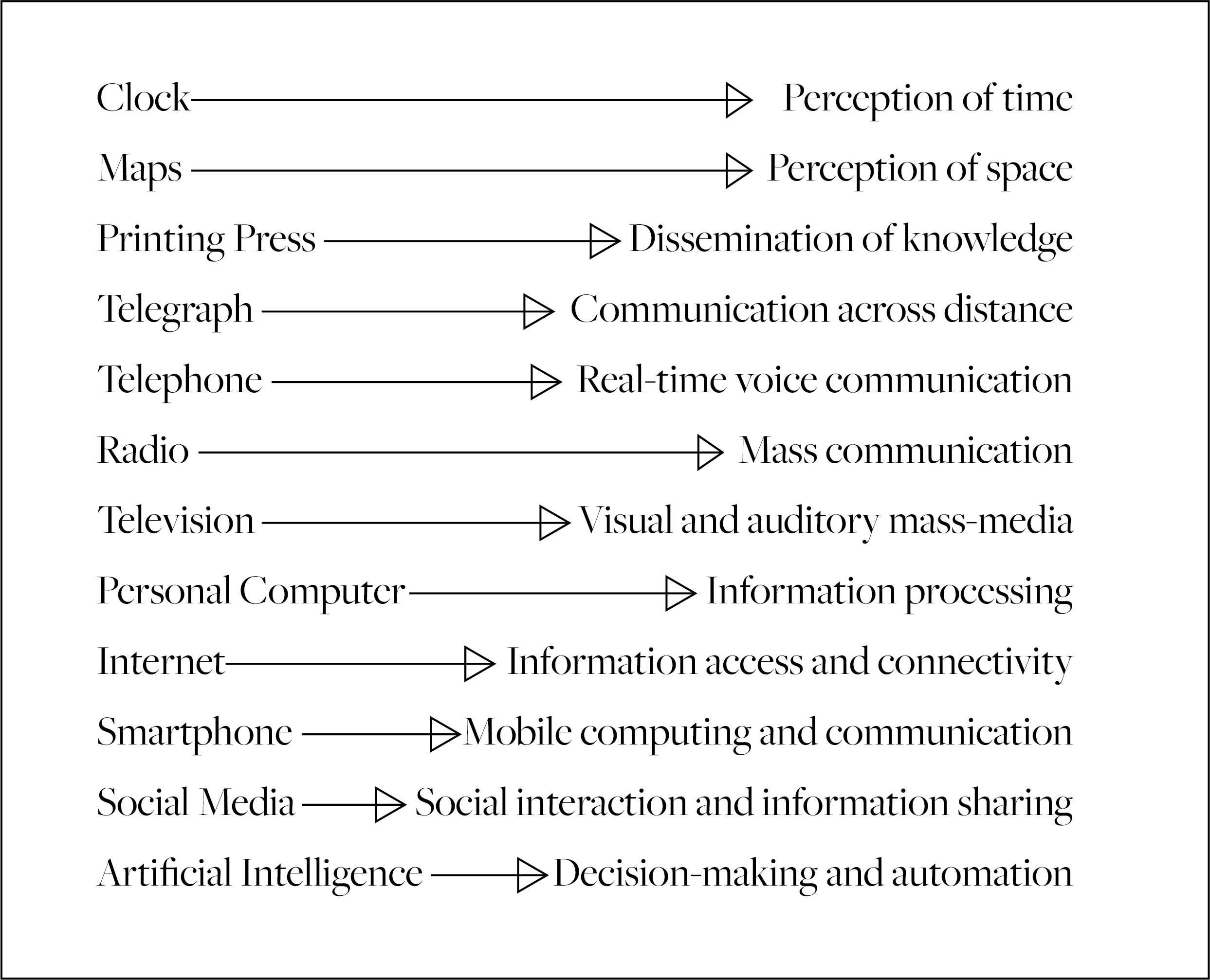#009 Winds of change: The power of time off and technological values
Explore how the power of time off and reflections on the Luddites reveal the need for adaptability in a tech-driven world. Discover strategies for resilience and how technology shapes our creativity.

Dear Hotpot Reader,
I am writing the ninth issue of Hotpot feeling like a flag waving in the wind of change.
Years ago, I watched a TED talk by one of my favorite creatives, Stefan Sagmeister, who discussed “the power of time off”.
Every seven years, Sagmeister’s studio shuts down for one year. He believes that the work of the following seven years originates from and is informed by that year dedicated to personal growth and reflection.

It is my turn today, as I am embarking on an 8-month sabbatical. An incredible opportunity to rewire my brain, recentre my creativity, and hopefully nurture new creative pulses.
As I plan to be on foot most of the time, I am thrilled to see where my feet will take me, what experiences await, and what stories I can tell and share with you.
A historical anecdote about change
Speaking of change, I had a drink a few weeks back with Marcos Areto, a designer and educator, who talked to me about the Luddites. For those unfamiliar, the Luddites were a movement that arose in the early 1800s when skilled textile craftsmen, known as croppers, protested violently against factory owners who preferred the efficiency of automation technologies and manufacturing methods, leading to the craftsmen losing their jobs and facing misery. Literally, rage against the machine.
Technology advancements that displace jobs are a contemporary fear, aren’t they?
Tim Harford, host of one of the podcasts, Cautionary Tales, beautifully narrates the story of the Luddites and its sad outcomes explaining that fighting or refusing change might be a lost battle and that it might be wiser and more impactful to focus on designing better transitions, in the Luddites case labor rights and regulations, to protect the interests of any part potentially affected by the rise of a given technology.
Adapting to Modern Times
In the face of change, fear and resistance are normal reactions. As humans, we evolved to appreciate and seek security and stability. But times are different now, and modernity requires a shift towards adaptability and resilience, embracing the unstable nature of our times.

Ways to build resilience and to make us more nimble might be through the diversification of interests and efforts, engaging in lifelong learning, and cultivating new powerful habits (James Clear calls them atomic) that support continuous growth and adaptability.
Rewiring My Brain
Lately, feeling the need to rewire and reconfigure my desires, ambitions, and values, I stumbled upon a book written in 2010 that feels still so relevant today: The Shallows by Nicholas Carr. Carr and I share the same problem: we find it increasingly harder to concentrate. Carr’s scapegoat? The internet.
The Impact of Disruptive Technologies
Our minds are plastic; they can be molded by many circumstances, including our partner, friends, and city, and also by technologies such as the web, social media, and AI (and a lot more).
Disruptive technologies have radically changed the human mind. Just imagine life before clocks and maps were invented, and how our perception of time and space must have changed with their rise.
Among the disruptive technologies capable of changing and shaping our minds, the written word enhanced our ability to memorize and process information and is still in constant evolution.
Below, I list 12 disruptive technologies that changed our minds for good and marked the beginning of new (mind) evolutionary eras.

Technology is a world of temptations, where being first and jumping on what's new often means having a competitive advantage. While this is partly true, we can think critically and identify technological values to continuously assess whether adopting a given technology aligns with our aspirations, values, and the greater good or it is exploitative, extractive, and alienating.
With technology being something in continuous development and evolution, it is important not only to evaluate technologies at their early stages but also as the development of new updates and functionalities affects how we interact with them. Think of social media and the shift from chronological to algorithmic feeds.
The Written Word and Its Evolution
The written word, in particular, is a fascinating invention rich with stories, such as the fact that the first books were not read in silence.
Silent reading develops our capacity to concentrate and immerse ourselves in a linear flow of thinking. The book, as a technology, fosters deep thinking and concentration.
While written words were once scarce and manually copied by scribes, the invention of the printing press made them abundant, overwhelming society. Some even lamented that there was too much information, distracting our minds.
If the printing press distributed the written word globally, the web democratized access to information and among other aspects, significantly altered our relationship to reading.
The Web’s Influence on Reading
From their inception, browsers embedded technological values that differ greatly from those of books. The hypertext in web browsers encourages skimming and jumping between links, promoting a distracted reading experience compared to the book’s deep engagement.
AI, Social Media, and Our Minds
While reading The Shallows, I couldn't help but think about AI and the Luddites, and the tools, touchpoints, interfaces, and digital experiences actively shaping and morphing my mind. Social media tops the list together with productivity apps such as Microsoft Office or Notion.
Technological Determinism: Shaping the Algorithm
Alba Aguera, a student I mentored for her graduation thesis, posed in her thesis research a simple yet profound question: "Am I shaping the algorithm, or is the algorithm shaping me?"
Alba identifies a reciprocal relationship with her algorithm, which shapes her as she shapes its results with her ever-evolving behavior. This reciprocity reminds me of an aspect of Albert Bandura's Social Learning Theory: Reciprocal Determinism. Behavior is influenced by interactions with people (and their thinking) and their social context.
This concern was echoed by another student in a new round of mentorship program between the MakerLab Team at Elisava, who desired to understand how we can emancipate ourselves from algorithms that shape or reflect us in undesired ways.
This can be seen as Technological Determinism: technology is not neutral and actively shapes how we think and behave.
Technology and Creativity
How is technology shaping our creativity? Years ago, talking about the rise of Facebook to my uncle Carlo, he said "With the rise of Facebook and writing posts, people write less SMS, and they begin writing better, again."
Somehow this conversation stuck with me and supports the thesis of a plastic mind, able to shape itself and adapt to the circumstances in which it operates.
In Japan, the popularity of texting led to a movement of cell phone novelist [8], who would write short stories texting on their phones. Now, as vertical scrolls become a popular direction to scroll feeds of information, webtoons, vertical format comics, are also a thing.
Could you think of other creative outputs that are consequences of disruptive technologies?
The Medium is the Message
As McLuhan says in the first chapter of Understanding Media: The Extension of Man (1964), "The medium is the message." Media can be seen as tools for our senses, extending them and changing the scale, pace, and pattern of our experience.
Take a story. Read a book and watch a movie about it. Your senses are engaged differently. The medium shapes the human experience.
Reflecting on Six Months of Hotpot
Six months into this self-publishing project, I appreciate the areas where my efforts have had an impact (mostly within me) and areas where they have not. The newsletter and the blog are only one experience of Hotpot. With more time, I am curious to see where this will go and what other media will compose the hotpot cosmos.
If you enjoyed this and/or previous issues, there are a few things you could do to support my work.
Spread the word! Forward it to a friend or colleague if you think they might find it interesting, too.
If you have been forwarded this email, click on the subscribe button below.
If there are takeaways you'd like to share, share this link on social media
While the content of Hotpot is free to all, you can consider supporting Hotpot by becoming a paying member.
Thank you for being on this journey with me.
Should you want to reach out, don't be shy and write to hotpot@andreabrena.com
Until next time,
⚡️
Andrea